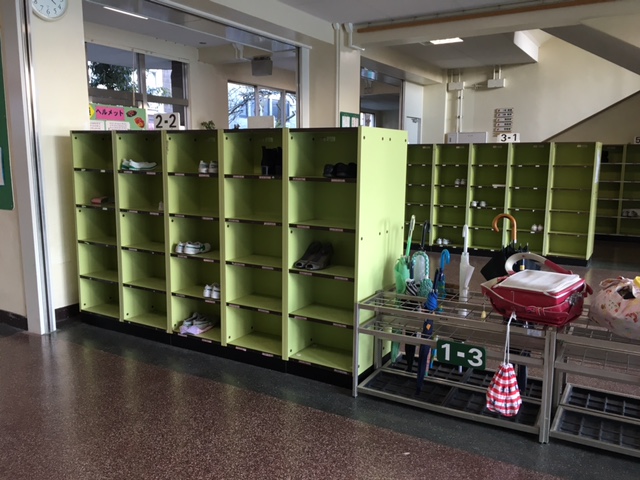What To Do When: Problems Arise at Your Child’s Japanese School
Difficult Times
Health problems, language problems, learning problems, fighting and bullying—during six years of elementary school your child is likely to face a number of issues. While we certainly don’t like it when things don’t go the way we want—especially when it comes to our kids—these difficulties provide an opportunity for learning and growth, for both our children and ourselves.
Although as parents, our first reaction is to fight to protect our children, a soft approach is likely to be more effective and less stressful for every member of the family.
Watch
Some problems at school will be clearly communicated to you by your child or his teacher, while others will be harder to identify: perhaps a feeling that something isn’t quite right or signs that something is off. These could include a sudden reluctance to attend school or other abrupt changes in behavior, such as no longer going out to play with friends, trouble sleeping, irritability, unusual neediness or sadness, and the seeking of more physical contact than usual.
Some children will be able to tell you that they have a problem and perhaps even what that problem is, but many will wait—whether consciously or not—for a quiet time together with you when they can broach the subject. The quintessential Japanese timing is when you are in the bath together.
Listen
Put away your mobile phone, turn off the television and sit down with your child for a spot of afternoon tea or oyatsu (afternoon snacks), or maybe sit and read a book together.
When she tells you about her problem, listen carefully and don’t overreact.
Use paraphrasing to acknowledge and understand what she says, but don’t stop the flow of the story. Your child will be wanting to expel the experience and the emotions attached to it. (For very young children, that expulsion is often adequate closure on their problem.)
At the end of her story, if you feel the problem is serious enough that you need to follow up on it, use more paraphrasing phrases to clarify what she has said—the who, when, where, what, why and how of the incident. Your child may not be able to answer all of those questions, though. When she has moved on to some other activity, jot down the key points of what she said, together with the date. Remember to also avoid blame, because it only makes matters worse.
Be objective
Remember that your child will be telling you his side of the story, and as important as that is, it is only part of what happened. Call the school to get the rest of the story. Do it after you have calmed down, and ideally do it when your child will not notice—perhaps when he is engrossed in watching T.V. Do call that day, though, so that the issue can be resolved quickly—it may be just a misunderstanding and not worth your worry. If it’s a continuing issue, make notes on when you called the school, who you spoke to and the content of the conversation so that you have some supporting evidence if you feel your problems are not being adequately addressed and you need to take them to a higher level.
Don’t be too optimistic
Be careful not to be overly optimistic about a situation and unintentionally whitewash over it. As well as creating the potential for the problem to recur, your child may lose trust in you and be reluctant to confide in you again. Remember that this is your child’s problem—not yours—and she is seeking your help. Be compassionate and attentive.
Get the school involved
Even if the problem involves other children at school, avoid taking matters into your own hands and directly contacting the parents of a student that your child has had an argument with. If discussions don’t go well and rancor arises, your (and your child’s) remaining years at school won’t be much fun. If the incident occurred at school, consult a teacher about it. Using a third party to help settle disagreements is an accepted social tactic in Japan. Use your discretion for incidents that occur outside of school hours.
Your first point of contact at the school will be your child’s class teacher.
Many teachers are still at school until surprisingly late in the evening, such as 7 p.m. If your child’s teacher has noticed a problem with or injury to your child at school, he will usually call you later that day to notify you of it. Scheduled individual discussions with homeroom teachers will probably be held just once a year, but teachers will cooperate if you request a meeting to discuss a problem.
You could also use your child’s renraku-cho, or communication notebook, to notify your teacher of a problem. My family got a good result from this approach when my daughter was in second grade and one evening told us about a spitting incident that was going on in the classroom. After listening carefully to what she said, my husband asked her what she wanted to do about it. He wrote in the renraku-cho what she had said, the teacher followed up on it with the class the following day and the problem stopped. An issue is harder to ignore if it’s written down.
Bridge the language gap
If you don’t speak Japanese and your child’s teacher doesn’t speak your language, written communication may be the best approach. Japanese people spend years studying written English at school but often feel uncomfortable speaking it. If you hit a problem that requires discussion, you could bring along a friend to act as a translator, or ask if there is another teacher or parent who could do the job. Some local ward offices offer free translation services.
Having your child do the translating may not be appropriate for some issues, but for others, like health and allergy concerns, it might be the best way because it will allow him to participate in the discussion on equal terms with the teacher, thereby boosting his sense of responsibility and autonomy and reducing his discomfort over being talked about. Discuss the problem with your child in advance and decide on a preferred plan of action and tell him that you want him to translate the Japanese so that you are able to support and assist him in tackling the issue.
If problems continue
Continuing or serious problems at school should be communicated to the principal and vice-principal. Teachers are required by law to notify senior staff of potential cases of bullying.
If you feel that your child’s homeroom teacher is not adequately addressing your concerns, ask to speak to someone higher up.
Try the vice-principal first, as she seems to have a more hands-on role in school management, and if that doesn’t reap results, talk to the principal. You can talk on the phone or arrange a time to meet with them. Some problems will, of course, take time to resolve, even if the teachers are doing the best they can. In discussions with the school you will probably want to get answers to questions like:
- What is the school’s stance on the problem?
- What will the school do to try to resolve the issue?
- When will you be next updated on progress? By who?
If you still feel that your concerns are not being adequately addressed and your child is at a Japanese elementary school, the next point of contact is your local ward’s kyoiku-iinkai, or board of education, which manages municipal elementary and junior high schools. The Tokyo Metropolitan Board of Education, however, is responsible for staff appointments and dismissals at those schools, and it runs the Tokyo Metropolitan Education Consultation Center, which holds English phone consultations every second and fourth Friday of the month between 1 p.m. and 4 p.m. (Tel: 03-3360-8008). The same phone number can be used daily for consultations in Japanese about attendance and development problems, as well as other issues related to schooling and child-rearing. For information in Chinese, English and Korean you can download their helpful PDF here.
Health Issues
The nurse at your local school will also help with health-related problems. For food allergies, contact the school’s nutritionist (eiyo-shi). Japanese schools perform a broad array of annual health checks on students around the start of the school year. These include eye and hearing tests, and heart and kidney checks. If any problems are found, you will need to follow-up on them with your own doctor, but it is a great system to help support your child’s health. Your school’s Parent Teacher Association (PTA) exists to help bridge the gap between parents and teachers, so it may be able to help you with less personal issues that you don’t mind discussing with other parents.
And finally…
Since prevention is the best cure, from day one, do what you can to help relationships with teachers and other parents go smoothly; smile, say hello, make small talk and help out at the school whenever you can. Allowing your child to invite her friends over to your house to play will also help you both deepen your friendships with schoolmates and their parents, and is particularly fun in the early years of elementary school when parents are not yet quite so uncool.
















Leave a Reply